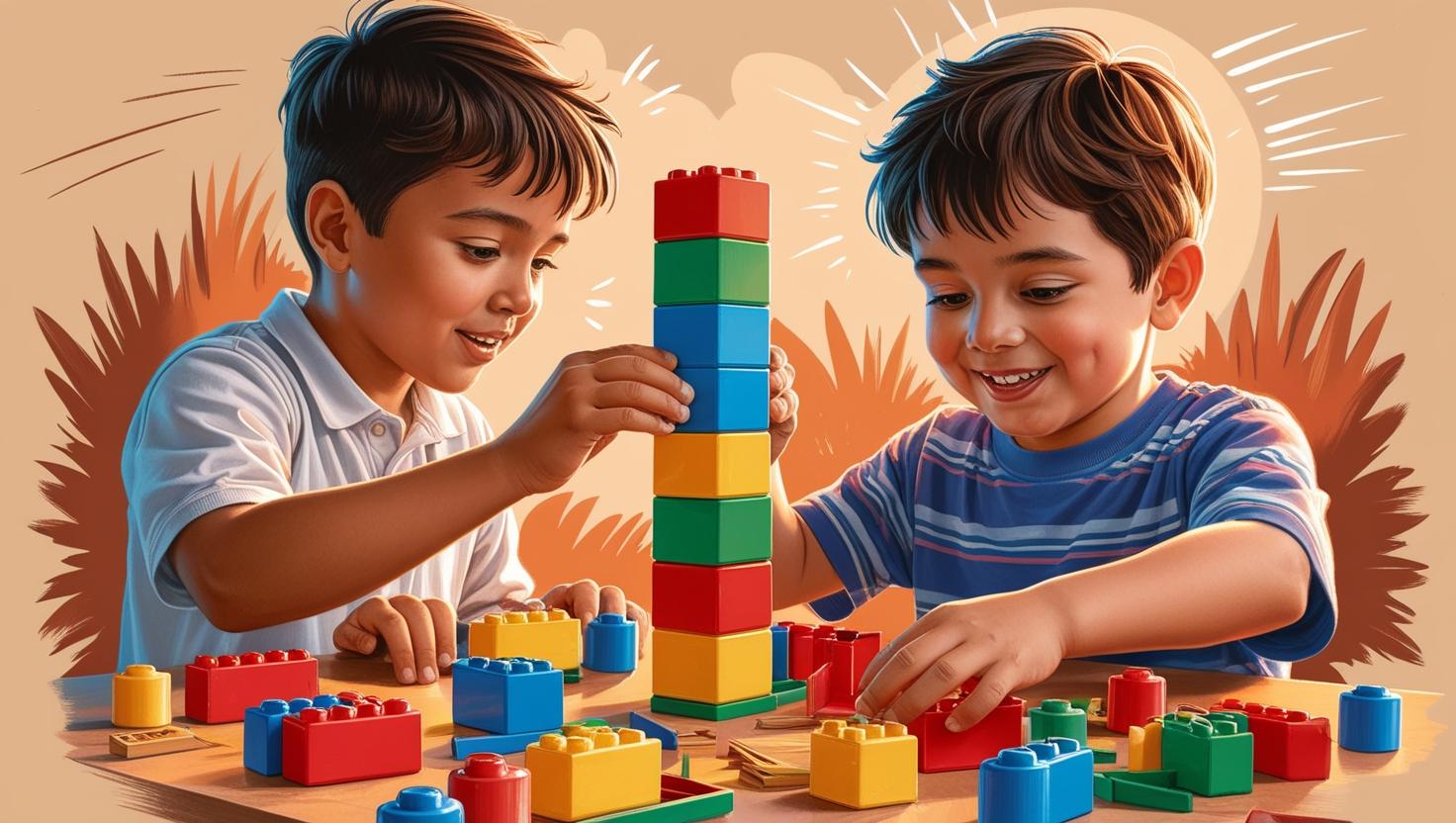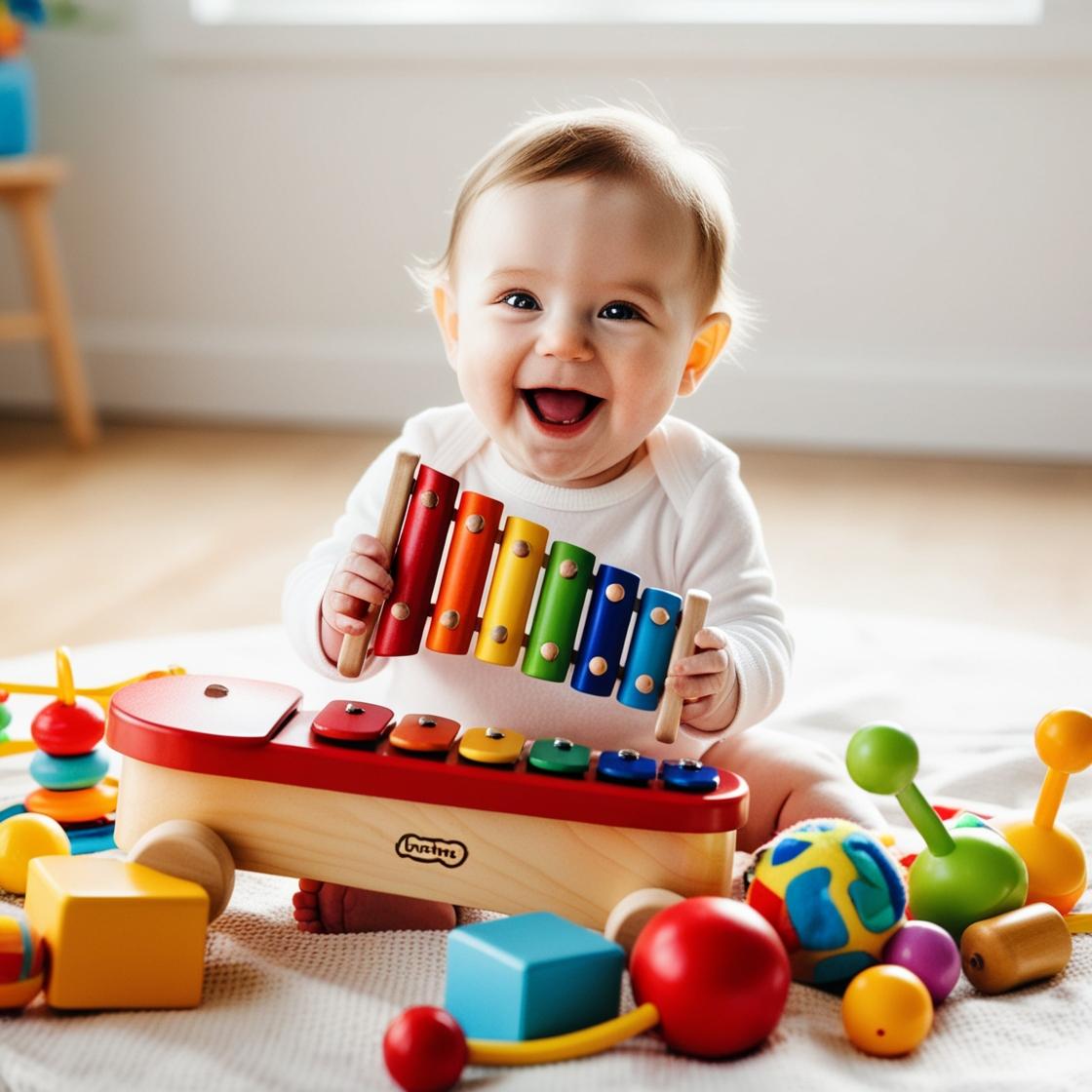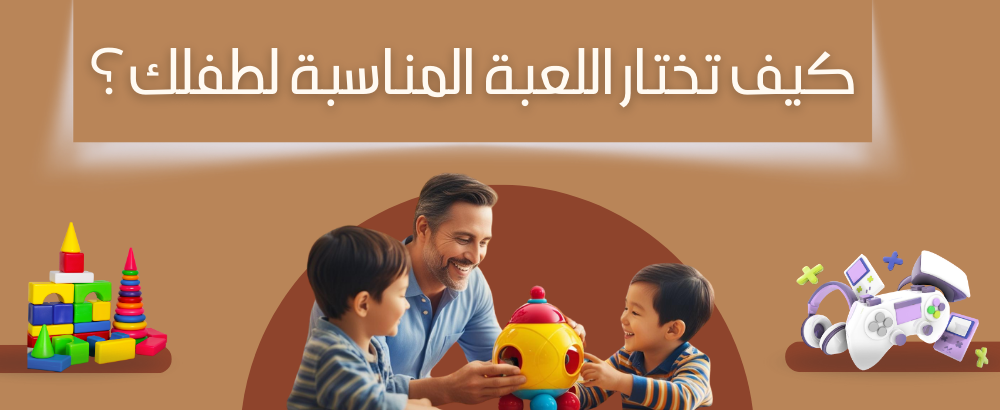Choosing the right toy for your child is more than just a decision about entertainment. In fact, toys are one of the most important tools that directly impact a child's development, their ability to learn, and their interaction with the world around them. When you choose a toy that suits your child's age and interests, you provide them with a tool that enhances their mental, motor, and social skills, making playtime a rewarding and educational experience.
But with so many diverse options on the market, parents can feel confused when making this decision. In this article, we'll walk you through each step to help you choose toys that suit your child's needs and add real value to their time, emphasizing the importance of toys in a child's all-round development.
Games: More than just entertainment
Games are not just a way to occupy a child's time; they are an effective educational tool that can have a significant impact on their growth and development. Here are the most important benefits games offer:
- Stimulating thinking and developing intelligence:
- Games that rely on solving puzzles, such as: Puzzle games , or building structures using blocks, help improve logical thinking and enhance a child's analytical skills.
- Developing motor skills:
- Games that require hand movement, such as building and construction toys , help improve hand-eye coordination and enhance fine motor skills.
- Enhancing social skills:
- When children play together, whether using pretend or group games, they learn how to cooperate, wait their turn, and interact with others in a healthy way.
- Developing creativity and imagination:
- Imagination games like Role - playing games help children express themselves freely and unleash their imagination.
- Teaching values and principles:
- Some games teach children patience, teamwork, and finding solutions in a constructive and fun way.
How to choose the perfect toy for your child?
1. Age is key
When choosing a toy, it's important to match it to your child's age, as each age group has its own unique needs. Here's a quick guide:
- From birth to two years:
- Toys that have bright colors or make pleasant sounds, such as: Baby toys stimulate the senses and help the baby explore the world around him.
- From 3 to 5 years:
- Toys that encourage creativity and imagination, such as blocks or Pretend play develops a child's imagination and enhances his social skills.
- From 6 years and above:
- More complex games like puzzles or Interactive games stimulate critical thinking and develop problem-solving skills.
2. Focus on your child's interests
Every child has unique interests, and understanding what your child likes makes choosing a toy much easier. If your child loves building, building toys are the best choice. If they are passionate about science and discovery, Science Experiment Games It will arouse his curiosity and enhance his love of learning.
3. Combine fun and learning
The best toys are those that encourage children to play and have fun, while also adding educational value. For example, educational toys that teach letters, numbers, or even languages help reinforce learning in a fun way.
4. Ensure the quality and safety of the game.
Your child's safety is your top priority. Always make sure to choose toys made from safe materials and free of toxic ingredients. Avoid toys that are too small for young children, as they can pose a choking hazard.
5. Choose a variety of games.
Offer your child a variety of toys that cover different areas, such as motor games, intelligence games, and imaginative games. This variety helps children develop multiple skills and keeps playtime fun.
Types of toys that add value to a child's development
1. Construction and assembly games
These games stimulate creative thinking and help develop engineering and problem-solving skills.
2. Puzzle games
These games develop the child's ability to concentrate and analyze, and also teach him patience and perseverance.
3. Imagination and role-playing games
Such as profession toys or imagination tools that help children understand the world by interacting with different life scenarios.
4. Motor games
Such as play balls or games that require physical activity, which help improve physical fitness and muscle coordination.
5. Educational games
These games encourage children to learn in a fun way, such as learning letters, numbers, or even critical thinking skills.
How to make playtime more beneficial?
- Playing with your child:
- Spending time with your child while they play not only helps strengthen your relationship, but it also allows you to observe their interests and guide them to get the most out of the game.
- Organizing play time:
- It is important to balance play time with other activities, such as studying or exercising.
- Encouraging diversity:
- Encourage your child to try new games that expand their horizons and help them discover new skills.
- Stay away from excessive video games:
- Although some video games are beneficial, excessive use of them can negatively impact a child's physical activity and social interaction.
Playing isn't just a time for entertainment; it's a golden opportunity to develop your child's skills in innovative and fun ways. Choosing the right toy for your child requires understanding their needs, interests, and age. By choosing toys that stimulate learning, thinking, and creativity, you can provide your child with a rewarding play experience.
Always remember that the toy you choose today could be a turning point in your child's life, teaching them a new skill or boosting their self-confidence. Choose carefully, and make every moment of play an opportunity for learning and growth!



